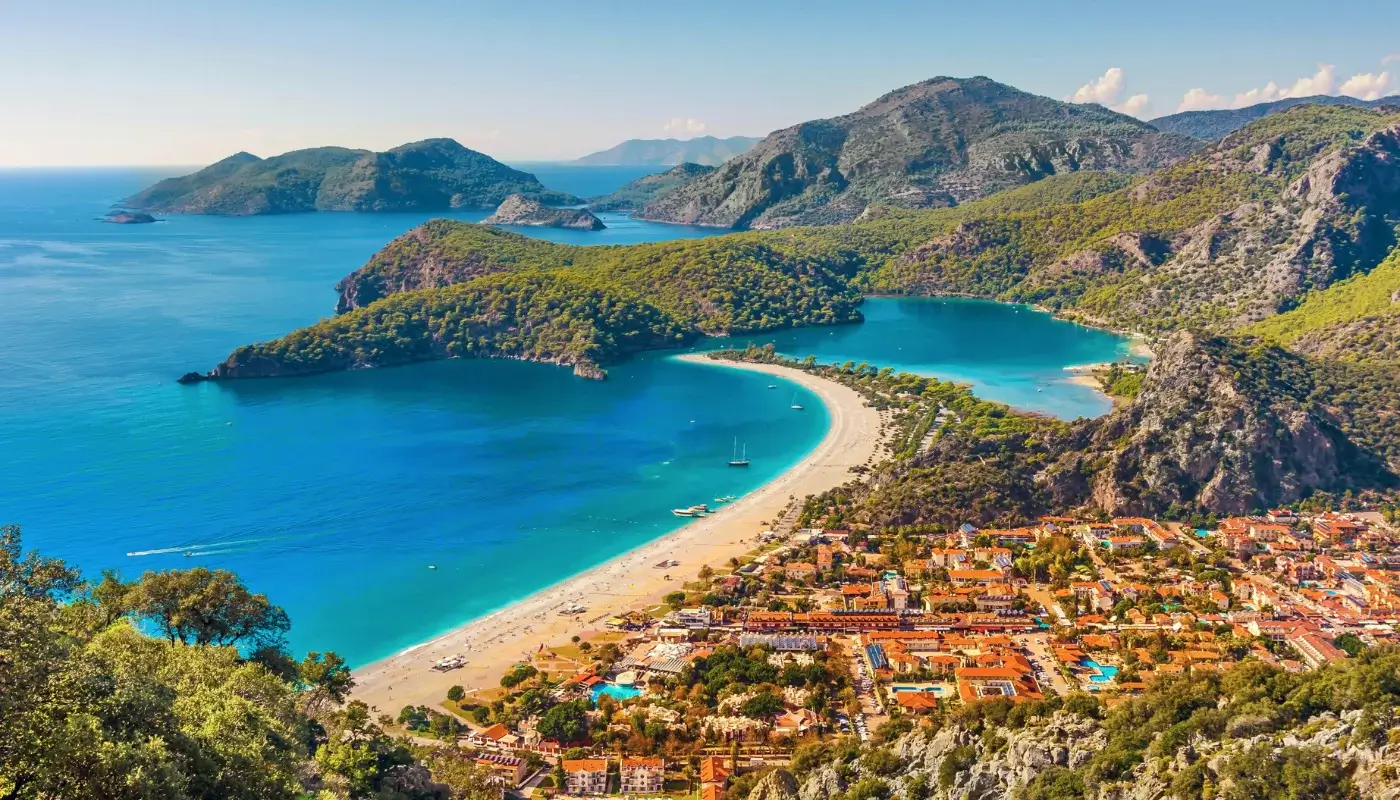Turkey and Azerbaijan are losing ground among Indian travelers

In recent years, Turkey and Azerbaijan emerged as rising stars on the Indian traveller's map. With their vibrant cultures, scenic landscapes, and relatively affordable luxury, both nations successfully tapped into India's booming outbound tourism market. From Istanbul's historic charm to Baku's futuristic skyline, these destinations catered generously to Indian tourists with Bollywood-style wedding packages, Indian restaurants, and tailored tours.
The partnership seemed mutually beneficial: Indian travellers sought new experiences, and both countries reaped the economic rewards. However, the warmth of these ties has recently turned cold.
In the aftermath of the India-Pakistan conflict ignited by the Indian Armed Forces’ Operation Sindoor, a decisive strike against terrorist infrastructure in Pakistan and Pakistan-occupied Kashmir (PoK), geopolitical allegiances have shifted.
While Pakistan sought international support in the wake of the operation, Turkey and Azerbaijan openly sided with Islamabad — a move that has now begun to cost them dearly, particularly in the realm of tourism.
Turkey, under President Recep Tayyip Erdoğan, has long aligned itself with Pakistan diplomatically, often making statements on Kashmir that have irked Indian officials. But this time, the support went beyond rhetoric. Reports indicate that Turkey supplied hundreds of drones to Pakistan in the days following Operation Sindoor, an act viewed in New Delhi as overtly hostile.
Azerbaijan, too, joined in expressing solidarity with Pakistan, with Baku issuing statements criticising India’s actions and supporting Islamabad’s stance on Kashmir. This open alignment with Pakistan in a highly sensitive and emotional conflict has not gone unnoticed by the Indian public.
Indian tourists, who form a sizeable portion of both Turkey and Azerbaijan’s annual visitor count, have responded with a growing wave of cancellations and boycotts. Travel companies in India — ranging from luxury tour providers to popular online travel agencies — have publicly suspended or limited their packages to Turkey and Azerbaijan.
On social media, the hashtags #BoycottTurkey and #BoycottAzerbaijan have trended repeatedly, fuelled by both patriotism and a sense of betrayal. The backlash has been swift and significant.
Tour operators report a sharp drop in bookings to Istanbul, Antalya, Cappadocia, Baku, and other popular spots. Wedding planners have relocated big-budget Indian weddings from Turkish resorts to destinations in the UAE, Thailand, and even the Maldives.
Indian film production companies, which once frequently shot in Cappadocia’s dreamy terrains or Baku’s slick urban landscapes, have also begun redirecting shoots elsewhere. For Turkey and Azerbaijan, this tourist withdrawal could not have come at a worse time. Both economies are heavily reliant on tourism — a sector still recovering from the global pandemic’s disruptions.
Indian travellers, known for their high spending and long stays, represented a critical demographic. Their absence has left a visible gap, especially in urban hospitality centres, luxury hotels, and guided tour circuits that once catered specifically to Indian preferences. Turkey’s response to this economic hit has been both strategic and, at times, desperate.
Reports from travel industry insiders reveal that Turkish consular officials have been reaching out to Indian tour operators in recent weeks, urging them to resume bookings. Promotional campaigns have been quietly launched to reassure Indian travellers of safety, hospitality, and “non-political” experiences. Yet, the efforts appear to be falling flat in the face of strong public sentiment.
The Indian government has made no official call for a boycott, but its silence is telling. In a country where public mood can swiftly shape commercial fortunes, the perception that Turkey and Azerbaijan have chosen sides — and not India’s — has taken hold. This sentiment has been amplified by influencers, celebrities, and citizen-led campaigns urging fellow Indians to “travel patriotic.”
Travel associations, too, have distanced themselves from the two countries, citing both security concerns and public sentiment. What’s particularly notable is that the blowback isn’t merely economic — it’s cultural.
Indian travellers who once marvelled at the grandeur of Hagia Sophia or enjoyed Baku’s lively boulevards now question whether their presence is even welcome. The narrative has shifted from exotic experiences to diplomatic insults. For many Indians, spending money in Turkey or Azerbaijan feels akin to endorsing nations perceived as adversarial during a time of national grief and unity.
In the face of this pressure, both Ankara and Baku have been relatively restrained in their public responses. Turkey, once vocal on Kashmir, has toned down its statements in recent weeks, possibly recognising the financial costs of political posturing. Azerbaijan, though less dependent on Indian tourism than Turkey, has also softened its messaging. But damage control, at this stage, may be too late to reverse public opinion.
Some observers argue that this rupture illustrates the risks of short-term political alignments in a globalised economy. While Turkey and Azerbaijan may have sought to bolster their strategic ties with Pakistan — itself a relatively limited source of tourism revenue — they underestimated the power of India’s soft retaliation. In an age where consumer sentiment can shift overnight, political missteps can translate directly into economic losses.The saga also reflects India’s growing assertiveness on the global stage.
Today, New Delhi is increasingly choosing to express its stance not only through traditional diplomacy, but also through economic choices. In this context, Indian tourists are more than just travelers — they reflect broader sentiments through their preferences. Their travel decisions, both in choosing destinations and opting out of others, can carry symbolic meaning. Today, the message from Indian tourists is clear: friendship and support during difficult times matter. Whether Turkey and Azerbaijan will regain their popularity as travel destinations remains to be seen. One thing is certain — in our interconnected world, even the choice of where to travel can become a form of civic expression, reflecting sentiments that go far beyond tourism. Read “Zamin” on Telegram!
Ctrl
Enter
Found a mistake?
Select the phrase and press Ctrl+Enter 





















